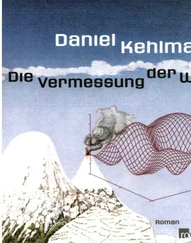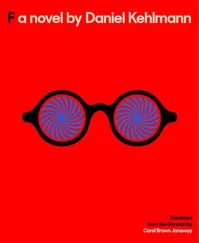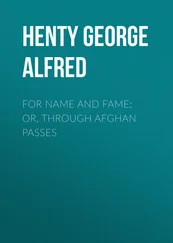“I think things are starting to move!” he cried.
At the other end of the departure lounge a young woman had taken up a position at one of the counters. People began to stand up, gather their belongings, and shuffle in that direction.
“It’s still going to be some time,” said Elisabeth.
“We’ll miss the flight!”
“They’ve only just started. They’ll be another half hour at least.”
“They’re going to leave without us!”
“Please, why would they—”
But he was already on his feet and in the line. She crossed her arms and watched his skinny figure inch its way forward. Finally it was his turn, he showed his boarding card, and disappeared into the walkway to the plane. She waited. Fifteen, twenty, thirty minutes passed, and people were still boarding. When there was nobody left, she got up and boarded within seconds. Pushing her way down the center aisle, she sat down next to Leo.
“You have no right to do that! I thought you weren’t coming. I was already working out how to stop them taking off, but I can’t make myself understood here, I can’t explain things to anyone.”
She apologized.
“No, really, it’s all exhausting enough as it is, I can’t cope with more … Did you see the two children up front, they’re weird. Particularly the little girl. Green eyes! They’re flying on their own, without their parents.”
“Impressive,” she said.
He took a long look at her. “I’m pathetic,” he said finally. “Aren’t I?”
“Well, yes.”
“I’m insufferable.”
She bobbed her head.
“I’d understand if you wanted to go home. Of course if you did, I’d fly home too. I couldn’t get through it without you. The whole thing was a mistake anyway, I should never have agreed, absolutely idiotic. Shall we just go home? Right now?”
“Please. Give it fifteen minutes. Please, just settle down.”
He fell silent. And he actually managed to get a grip on himself and keep quiet for the next ten minutes while the plane accelerated, took off, and soared into the sky.
They had met six weeks earlier at a particularly boring party, and it was only after she’d been talking to him for some time that it dawned on Elisabeth that the strange but intelligent man who kept cracking his knuckles and staring at the ceiling was none other than Leo Richter, the author of intricate short stories full of complicated mirror effects and unpredictable shifts and swerves that were flourishes of empty virtuosity. She had recently read his collection about the doctor Lara Gaspard, and naturally she knew his most famous story, the one about the old woman on her way to an assisted-suicide clinic in Switzerland. They had met again the next day, already that evening she went with him to his sparsely furnished apartment, and to her surprise, Leo in bed demonstrated a decisiveness for which she was totally unprepared. She had dug her fingernails into his back, rolled her eyes up under their lids, and bitten his shoulder, and as she was on her way home in the dawn after several hours that left her totally spent, she knew that she wanted to see him again and that perhaps there was room for him in her life.
She soon discovered all the aspects of his personality: his anxiety attacks and neuroses, the sudden waves of euphoria that came out of nowhere, and the periods of total concentration during which he seemed to vanish inside himself and if she so much as spoke to him, he looked at her as if he had no idea what she was doing there.
For his part, he was fascinated by her job. By her activities with Doctors Without Borders—had she really done parachute jumps, with a real parachute? In a real war zone?
At this point, she always changed the subject. She knew that curiosity was part and parcel of his makeup and his métier, but there were things she didn’t wish to talk about. Anyone who hadn’t lived through such things personally would be likely to take it all as mere phrasemaking and anecdotage; words failed to capture the reality. What it felt like to amputate a man’s legs under inadequate anesthetic, to drag him across fields in the shimmering heat, only to lose him a few feet from the waiting helicopter, so that the entire effort was pointless, and then on the flight back to realize that entire portions of the previous days had erased themselves from your memory, that there were blank spaces, as if you’d had experiences that were so extreme and alien that they had no firm foothold in reality and were unavailable to the mind. How should she have described these things? As an old doctor had said to her years ago, people who have experienced nothing love to tell stories while people who have experienced a great deal suddenly have no stories to tell at all. But she knew that Leo intuited certain things. She had the same profession as his heroine Lara Gaspard, they were the same age, and if she was right about his sparse descriptions of Lara’s appearance, the two of them also looked rather alike. This must be another reason why he found her interesting. She often noticed that he watched her with an almost scientific focus, his lips moving as if he were taking mental notes.
A few weeks previously, he had given a lecture at the Academy of Mainz about the ongoing death of culture and the fact that this was not necessarily a bad thing, since humanity would be in better shape without the burden of knowledge and tradition. This was now the age of the image, of the sounds of rhythms and a mystical dissolution into the eternal present—a religious ideal become reality through the power of technology. Nobody could figure out whether he was being serious or ironic, whether he was a nihilist or a conservative, but this was precisely the reason why the text was reprinted, all sorts of responses were solicited, and German cultural institutes all around the world invited him on lecturing tours. On a whim, he had agreed to do a circuit through Central America, and when he’d asked Elisabeth if she’d like to come along, to her own surprise she hadn’t even thought twice.
Shortly before they landed, Leo fell into a restless sleep. Elisabeth was dreading what would come next: at their last stop, the moment they were in the airport he had been literally paralyzed with disgust at the sight of the head of the cultural institute in her traditional woolen jacket. He had sat in the car with Elisabeth in silence, jaw clenched, and had even reached for her hand when they were stopped at a police checkpoint. Nothing happened, of course, and the agents had immediately waved them on, but when they reached the hotel, he was totally undone, covered in sweat and terrified. He spent the entire afternoon locked in their double room before giving his evening lecture to twenty-seven Germans in a badly lit hall, after which the lady director of the cultural institute had insisted on taking them to the only pizzeria in town, where she had plied Leo with questions about where he got his ideas from and did he write in the mornings or the afternoons. He then spent half the night in lamentation, pacing up and down the room and cursing his fate until finally, more out of desperation than passion, the two of them fell onto the bed in each other’s arms. At five in the morning her cell phone rang, and she was told that three of her closest coworkers had just been abducted in Africa.
“Did you see?” Leo was awake again, tapping her shoulder and pointing to the outside beyond the portholes. “Like a great big stage set. A grid with hundreds of lightbulbs. Maybe we’re not flying at all, maybe we’re not even here. Maybe it’s all a trick. And besides, what do we do if there’s no one there to pick us up? I’ve got a feeling, and I’m not often wrong. You watch.”
The lady from the cultural institute who was waiting was named Rappenzilch, wore a traditional woolen jacket, and had buckteeth. Her first question to Leo was where he got his ideas from. Elisabeth listened to her voicemail. She felt hollowed out by fear.
Читать дальше












